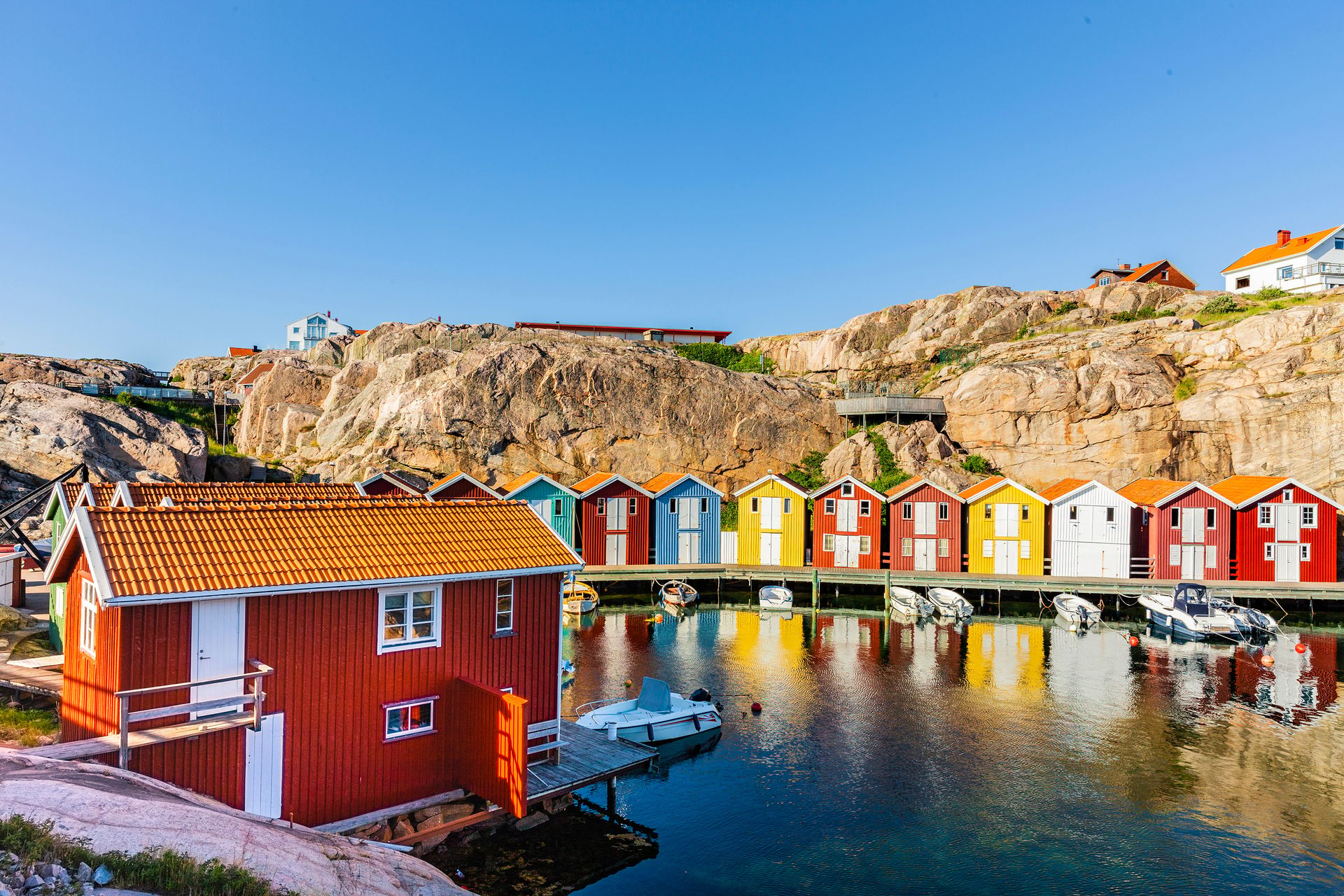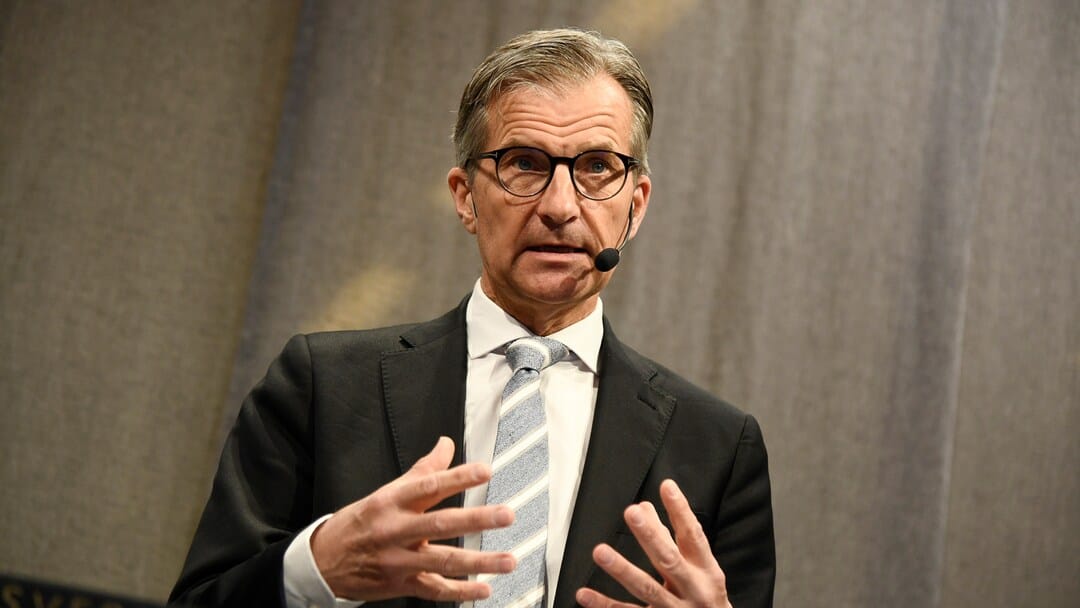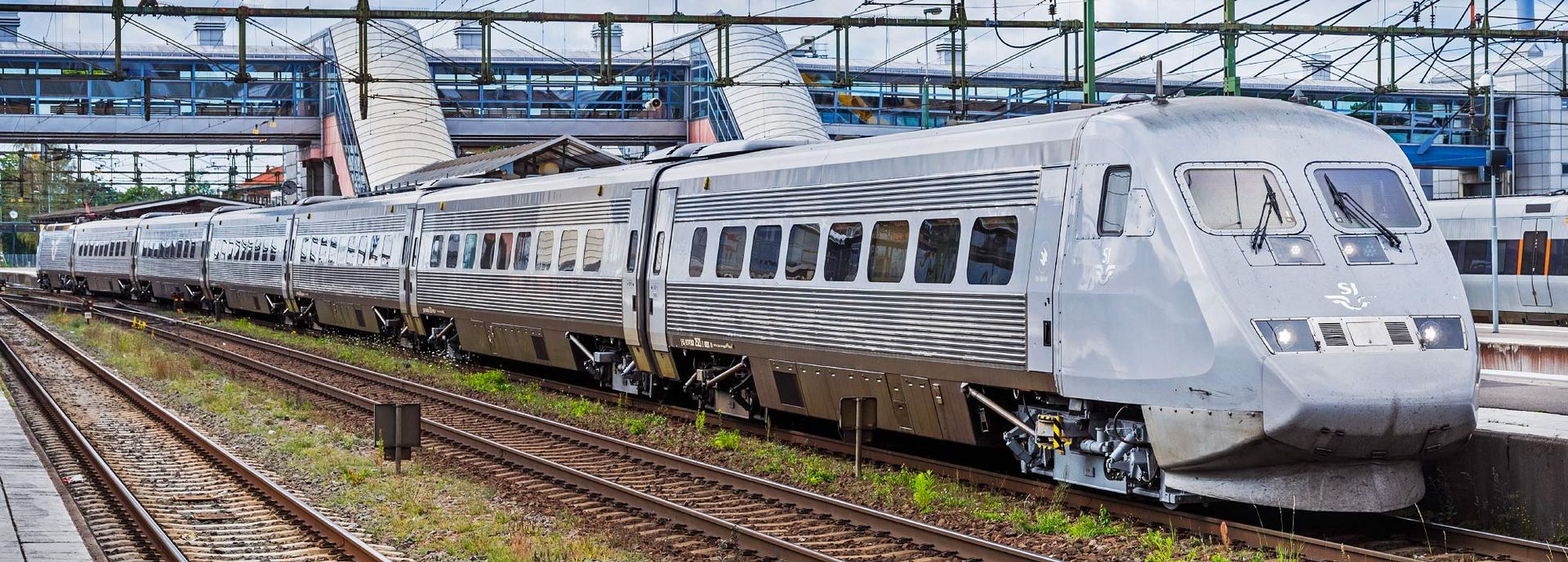- The Old Country
- Posts
- The Old Country Newsletter – Vi är tillbaka!
The Old Country Newsletter – Vi är tillbaka!
Your Weekly Newsletter from Sweden!


Good morning!
It’s Friday, August 8.
The Old Country is back after an unusually sunny and warm summer in Sweden.
Philip has spent the summer roaming the south of Sweden and preparing for a move to what was once meant to be the nation’s capital (any guesses?). Meanwhile, Hannes has crisscrossed Europe, with stops in Portugal, Germany, and Switzerland – the one with chocolate and mountains, not meatballs, IKEA and … mountains.
We’re also returning in style, with a new layout and some fresh segments, including a weekly poll where we’d love to hear your thoughts. Let us know what you think of the new look! You’ll find our email address at the bottom of the newsletter.
We hope you’ve had – and are still having – a truly great summer.
Have a wonderful weekend!
Philip & Hannes
Did you get this newsletter sent to you from someone you know? Click on the button below to subscribe for yourself. All you risk is to learn something new (perhaps even about yourself.)
Word of the week
FIKA [fee-kah]
coffee break (with pastries or snacks, often social)
Newsletter’s Back — and So Is Inflation

Attribuition: TV4 Nyheterna
We’re kicking things off with some of the most read stories in Sweden while you were out enjoying the summer sun. First up: inflation’s back with a vengeance, and it’s bad news for anyone hoping for cheaper mortgage rates anytime soon.
The Swedish economy just got a slap in the face from July’s inflation numbers. According to preliminary data from Statistics Sweden (SCB), inflation measured by KPIF (which excludes interest rate changes) came in at 3.0%. That’s slightly lower than analysts’ expectations of 3.1%, but still a noticeable jump from June’s 2.4% and well above the Riksbank’s 2% target.
“It’s a cold shower for the Riksbank — and for many Swedish households,” said Alexandra Stråberg, Chief Economist at Länsförsäkringar. She thinks any talk of near-term rate cuts should be shelved: “The door is closed for now. We’ve had two inflation readings that aren’t even close to the target.”
Handelsbanken’s Head of Forecasting, Johan Löf, agrees that the numbers are disappointing — but he’s not ruling out a rate cut entirely. Despite hot inflation, the rest of the Swedish economy has been downright chilly this year, which could ease inflationary pressure down the line.
Some of July’s price hikes — like travel and rental cars — are being chalked up as seasonal blips. The final numbers come out August 14, but unless something dramatic happens, the dream of lower interest rates may have to wait until autumn.
Postcard from the North

Kebnekaise – Sweden’s highest summit
In other news
⚽ Sweden was eliminated from Euro 2025 after a dramatic penalty shootout loss to England, marking the end of coach Peter Gerhardsson’s eight-year tenure. Despite strong performances, including a 2-0 lead and four penalty saves by goalkeeper Jennifer Falk, Sweden couldn’t secure the win, and several veteran players may have played their last championship. With Tony Gustavsson set to take over, the team now faces a period of transition and uncertainty regarding the future squad and staff.
🥵 Nordic countries are experiencing an unprecedented heatwave, with record-breaking stretches of temperatures above 30°C (86°F), particularly in northern regions of Norway, Finland, and Sweden. Scientists say this is the longest and most intense heat event since records began in 1961, with areas even above the Arctic Circle affected. The extreme heat, driven by climate change and high-pressure systems, has overwhelmed local infrastructure, caused health issues, sparked wildfires, and surprised both residents and tourists seeking cooler weather.
💶 In late July, the Swedish government called on the EU to freeze its trade agreement with Israel to pressure the country into allowing more humanitarian aid into Gaza. The move sparked strong backlash and division within the ruling coalition, with the Sweden Democrats and several Christian Democrats opposing the decision. Israel’s ambassador criticized the stance as potentially empowering Hamas, while opposition parties accused the government of damaging Sweden’s foreign policy credibility.
Gör Din Röst Hörd
🗣️ Make your voice heard!
Click on the headline below to follow the link, then choose the option that speaks the most to you.
The Question of the Week is:
A Summer of Train Pain

Attribution: järnväg.net
Delays, broken toilets, and stranded families — Sweden’s rail network has had a meltdown this summer, and there’s plenty of blame to go around.
Swedish rail traffic has taken a nosedive over the past few weeks, with thunderstorm disruptions and heat-induced rail buckling only part of the problem. Transport Minister Andreas Carlson says the real issue is decades of delayed maintenance. Speaking on national radio, he pointed to an “enormous maintenance debt” and noted that the government is investing SEK 18 billion this year just to keep the current infrastructure from falling apart entirely.
But for passengers stuck in non-moving trains with no food, water, or functioning toilets, that's cold comfort. One train, the Snälltåget, was stuck outside Linköping for eleven hours — and reportedly still hadn’t moved by sunrise. Travelers described chaotic conditions, a lack of communication from staff, and disappearing personnel. One passenger put it simply: “Unacceptable? That’s putting it mildly.”
Meanwhile, rail experts writing in DN Debatt are calling for a full organizational reboot — splitting off the railway system into a new, dedicated authority focused solely on managing infrastructure and reducing delays. The Green Party wants to haul both the Transport Minister and Snälltåget’s leadership before Parliament’s transport committee to explain the mess.
And while Sweden’s trains are technically more punctual than its planes (96% on time or “just“ 15 minutes delayed in June), the recent chaos suggests there’s more to reliability than arrival stats. With incidents from Bastuträsk in the north to Alingsås in the west, this summer has left passengers asking: is it too late to book a bus?
Swede-ish Notes

Attribution: Arbetet
An American Savior
Starting this week, we’re adding a new segment to the newsletter: a quick look at something current or historical – told with a little more opinion than the rest of The Old Country. Not an editorial, not quite news – think of it as a coffee-break reflection.
For months, the fate of Northvolt has been a suspense story worthy of a Netflix mini-series, minus the dramatic soundtrack. Once Sweden’s great green hope for European battery independence, the company’s bankruptcy felt like a gut punch, especially in Skellefteå, where its flagship factory stood idle.
Enter Lyten, a California-based battery maker, now stepping in to buy Northvolt’s remaining assets in Sweden, Germany, and Poland; plus a research hub in Västerås. Talks are even underway for a stalled Canadian plant.
The Swedish government is pleased. Energy and Business Minister Ebba Busch called it a victory for “Sverige AB,” praising the potential for revived battery production and thousands of jobs. But the real sigh of relief is coming from the workers and communities who have lived in limbo for months.
It’s not the fairy-tale ending some imagined – Sweden’s battery giant is now partly foreign-owned – but for Skellefteå, it’s a restart. And in a time when headlines about the U.S. here have often been less than flattering this past year, these Americans are, at least for now, being welcomed as the cavalry.
